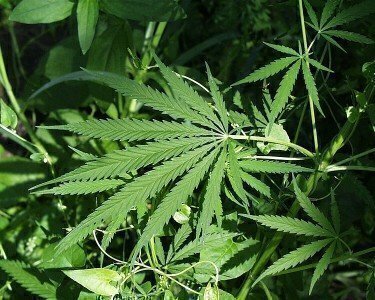United States Attorney General Jeff Sessions is expected to release a report this week that may urge more federal interdiction against state-level medical marijuana programs – a move that would raise some compelling legal and policy questions.
 On Sunday, the political website The Hill said Sessions wanted the report submitted by Thursday, July 27, based on directives he issued back in April. A task force headed by Sessions on “Crime Reduction and Public Safety” is handling the report, and it is widely expected it will include measures about recreational cannabis use.
On Sunday, the political website The Hill said Sessions wanted the report submitted by Thursday, July 27, based on directives he issued back in April. A task force headed by Sessions on “Crime Reduction and Public Safety” is handling the report, and it is widely expected it will include measures about recreational cannabis use.
But there are expectations that medical marijuana measures, at a federal level, also will be part of the task force’s policy recommendations. In May 2017, Sessions asked Congress to eliminate a budget provision called the Rohrabacher–Farr amendment, which prevents the Justice Department from using its funds to block states with legalized medical marijuana “from implementing their own State laws that authorize the use, distribution, possession, or cultivation of medical marijuana.”
The amendment passed Congress with bipartisan support in 2014, and it was upheld in a 2015 federal court ruling by Judge Charles Breyer (the brother of Supreme Court Justice Stephen Breyer) when challenged by the Obama Justice Department in its effort to shut down California medical marijuana dispensaries.
The letter from Sessions to Congress was later published in two media outlets. “I believe it would be unwise for Congress to restrict the discretion of the Department to fund prosecutions, particularly in the midst of an historic drug epidemic and potentially long-term uptick in violent crime,” Sessions said.
In May, President Donald Trump also attached a signing statement to that amendment that led some observers to believe the White House could reconsider its support for medical marijuana laws passed by states. “I will treat this provision consistently with my constitutional responsibility to take care that the laws be faithfully executed,” Trump said.
As of July 2017, 28 states and the federal district have legalized medical marijuana, but medical marijuana use is still illegal nationally under the Controlled Substances Act and marijuana is listed under the Schedule 1 list of drugs, along with heroin and LSD.
The conflict between state laws that allow limited marijuana use and the federal law that bars it, in theory, falls somewhere in the domain of the Constitution’s Supremacy Clause, which reads in part that “This Constitution, and the Laws of the United States which shall be made in Pursuance thereof; …, shall be the supreme Law of the Land.”
Some states-rights supporters argue that the 10th Amendment, which grants rights to the states and the people not reserved to the federal government, allows for states to choose their own marijuana laws and how the laws are enforced by state and local law enforcement officers.
To be sure, any widespread federal effort to enforce legal medical and recreational marijuana laws, through the prosecution of growers, shippers and retailers allowed to handle marijuana under state laws, would face considerable financial and logistical hurdles. These federal efforts also likely require local law enforcement to take part – which is another 10th Amendment issue involved with the Trump administration’s sanctuary city polices.
Under the Supreme Court’s Anti-Commandeering doctrine, federal agencies have limited powers to force state and local law enforcement agencies to enforce federal laws, especially when local governments are paying the bill.
In the end, the President does have the ability to “take care” that laws are executed, but Congress has the “power of the purse” to fund such programs, and it also can change the federal law about marijuana use, if needed. Last month, a bipartisan group of Senators introduced legislation to amend the Controlled Substances Act to recognize that states can allow medical marijuana sales, distribution and use within their borders. (A similar act wasn’t vote on during the prior Congress.)
For now, this could be one issue where the Supreme Court isn’t involved. In 2016, the Court received an original jurisdiction lawsuit, Nebraska and Oklahoma v. Colorado, where Nebraska and Oklahoma asked the Court to rule on the legality of parts of Colorado’s legalized marijuana law. Without comment, the Court refused to hear the case. Justice Clarence Thomas offered a dissent, arguing that the case was a good one for the Court to consider as a way of understanding its role in settling disputes between states. Thomas didn’t offer an opinion on the legal fight about marijuana but he wanted to hear more.
Scott Bomboy is the editor in chief of the National Constitution Center.







